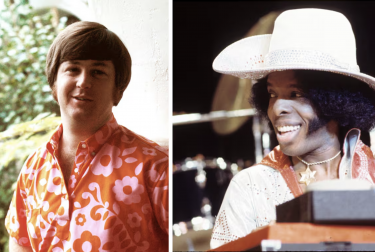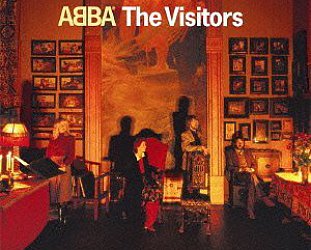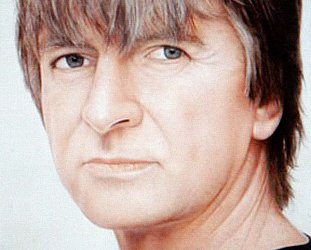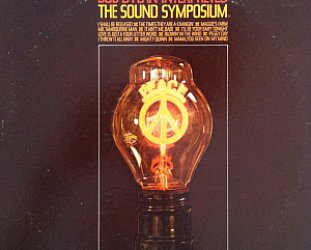Graham Reid | | 2 min read

As news helicopters swirled overhead, demonstrators and troops faced off and smoke rose over Los Angeles, California became the focus of world attention last week.
It seemed bleakly ironic that two musicians who helped define the promise and dream of the Golden State should die within days of each other.
In very different ways Brian Wilson and Sly Stone, both 82, had shaped popular culture's view of California through the lens of sun, surf, psychedelia and unity.
Wilson's world was initially one of blonde surfer girls and hot rods, his music on songs like Surfin' U.S.A was a clever amalgamation of Chuck Berry's story-telling rock'n'roll, doo-wop and close harmony groups such as the Four Freshmen.
I Get Around and Wouldn't It Be Nice distilled teenage sentiments and dreams into little more than two minutes.
Although the Beach Boys' first three albums had “surfin'” in their titles (their fourth celebrated hot rods on Little Deuce Coup), Wilson's writing also offered evocative, inward-looking miniatures with sophisticated arrangements like the slow Surfer Girl and especially the prescient In My Room: “There's a world I can go and tell my secrets to”.
Within a few years he would write I Wasn't Made For These Times and the sublime God Only Knows (one of Paul McCartney's favourite songs) for the Pet Sounds album (1966). He brought a musical intelligence into pop arrangements and writing which hadn't been heard before.
Wilson painted in delicate colours of sound and Good Vibrations – still a remarkable piece of work – evoked a mystical state of promise, summer breezes and the warmth of the sun.
Wilson's music – described as “baroque pop” or “cosmic”-- could only have come from California.
Like Wilson, multi-instrumentalist Sly Stone (born Sylvester Stewart in Texas) was a product of his influences. He'd grown up with gospel and as a young radio DJ in San Francisco added music of the British Invasion (Beatles, Stones etc) to the soul station's playlists.
He produced white pop and rock bands (among them the Invasion-influenced Beau Brummels and pop star Bobby Freeman) and played on numerous sessions (Ronettes, Marvin Gaye, Righteous Brothers). By the time he formed his Family Stone band in 1967 he could draw from a deep well of musical ideas.
He also had an inclusive vision, the band was uniquely integrated -- black, white, men and women – playing psychedelic soul, funk and rock.
The album titles were announcements: their debut was A Whole New Thing, the follow-up Dance to the Music and its title track delivered their first chart hit.
With bassist Larry Graham (Drake's uncle) they had a funkmaster on hand for hits like Thank You (Falettinme Be Mice Elf Again).
If Sly gave us a celebratory, psychedelic funk and politically progressive soul which influenced everyone from Miles Davis, George Clinton and Prince to Andre 3000, Wilson's journey was more inward.
By the time Sly and the Family Stone emerged, Wilson had already retreated after a string of polished pop hits and the seminal Pet Sounds album . . .
To read the rest of this article go to the New Zealand Listener here





post a comment